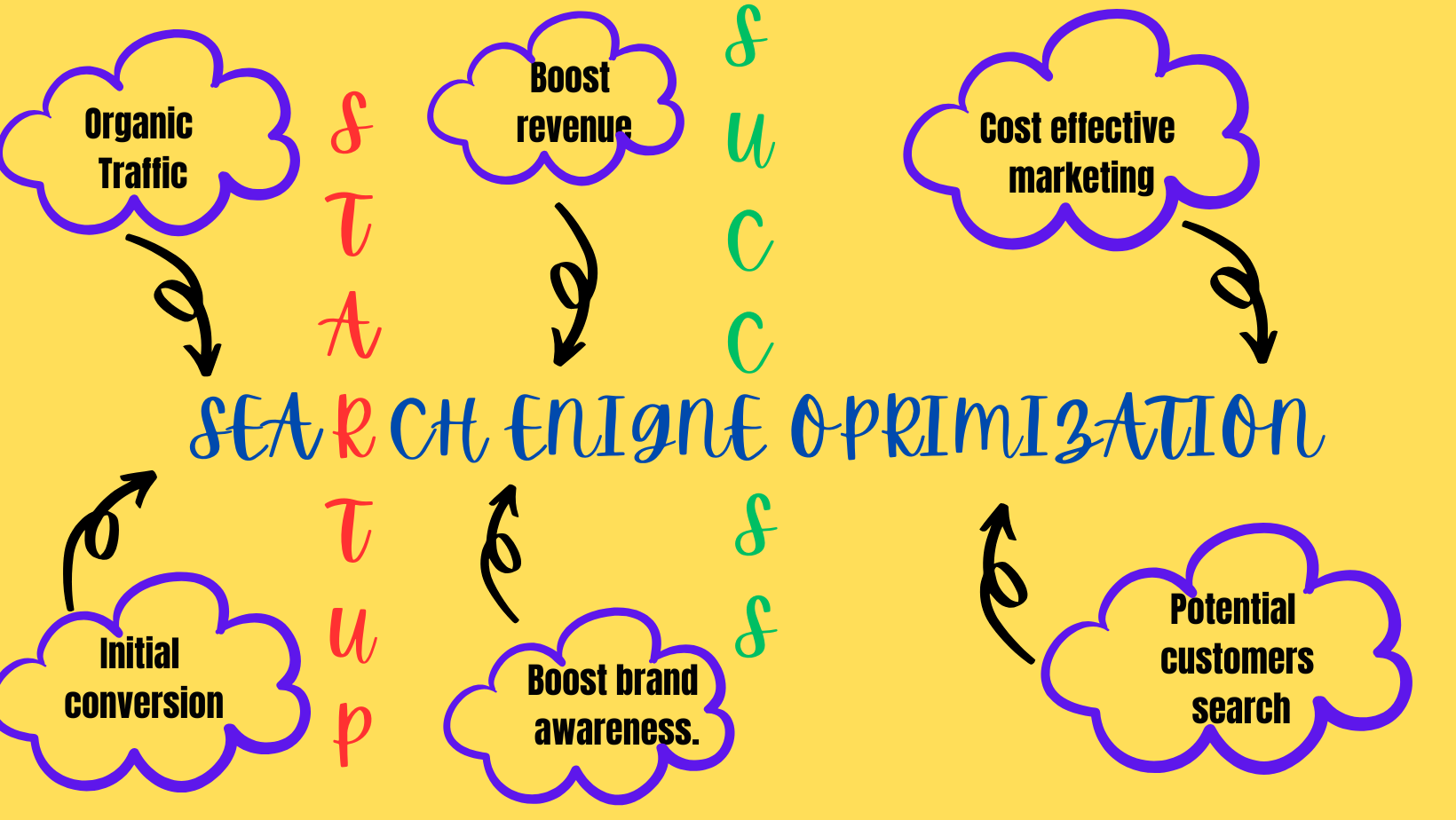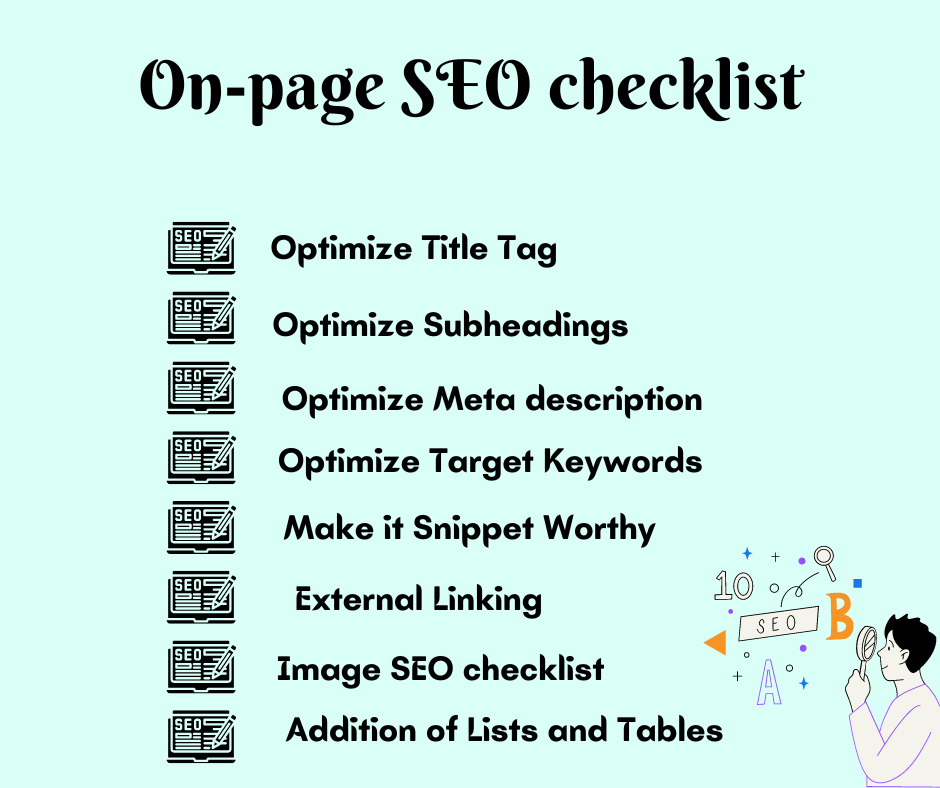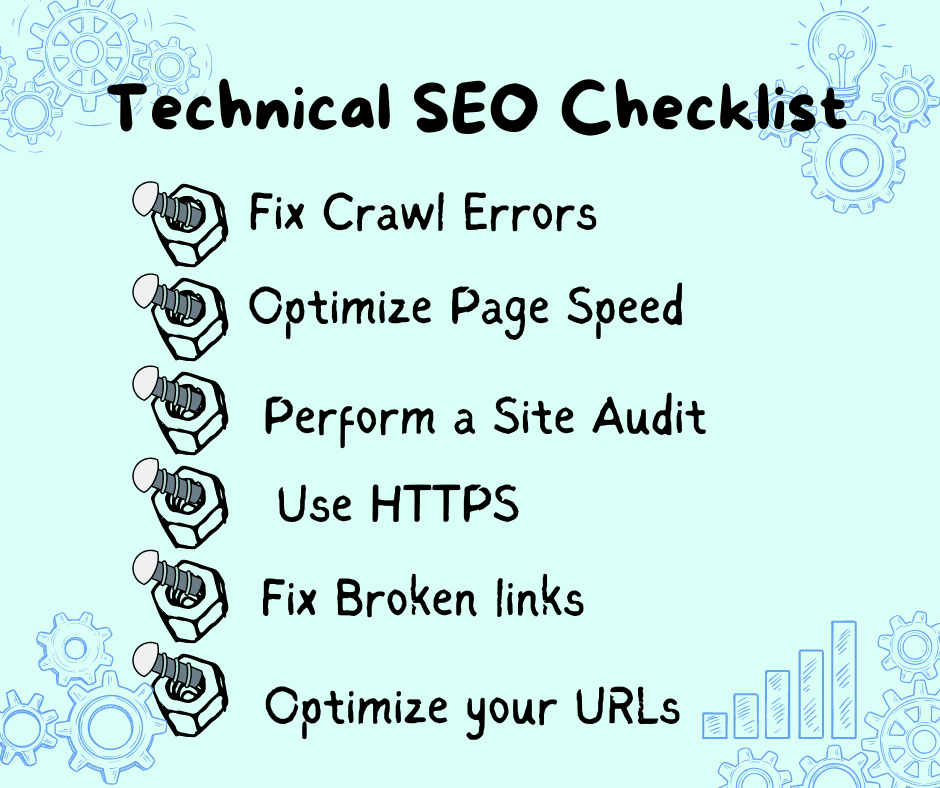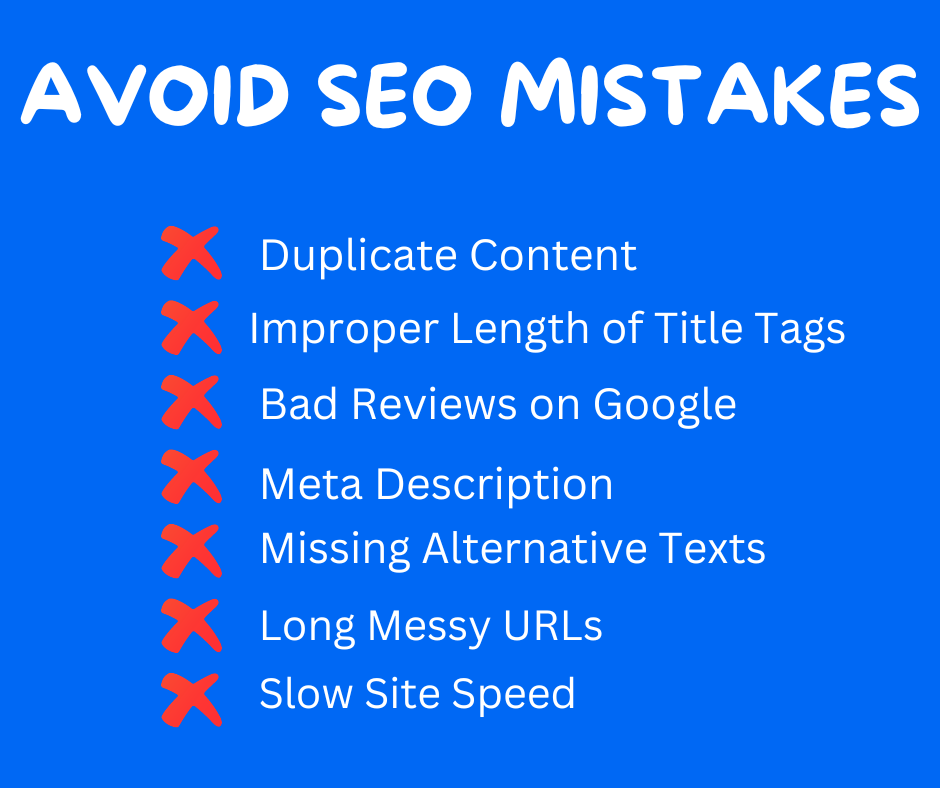SEO is the most important and necessary step for any business to stay in the race. The current era is of digital presence and SEO ensures it. No matter whether you are a small business a prominent entrepreneur or a startup. SEO can change the game at any time. So startups need to focus on SEO very seriously.
Startups have many questions like How can start doing SEO for my startup? Is SEO really important for SEO? How are startups approaching SEO? and so on. I have got answers to all your queries. Let’s plan an SEO strategy for startups together.

Page Contents:
Do Startups Need To Focus On SEO?
Let’s take this question from the basics. Startups need to attract organic traffic for the long term. Paid ads are an option but not for a longer period. Startups focusing on SEO from the start will make their website stand out from others.
SEO gives the data on behavioral reports. These reports provide the data to analyze what your potential customers search for. In the initial days of setting up a business the marketers and owners do not know much about the behavioral trends and thus SEO helps.

To get initial conversion and boost revenue. Starting up comes with a lot of challenges but SEO can reduce some of it. Since it is a free marketing strategy you can save a lot by not doing massive paid promotions. If your website is well-optimized you need not worry. SEO helps to build a strong audience and helps to boost brand awareness.
How To Do Search Engine Optimization For Startups?
The first battle for a startup is to become visible to the audience. Search engines now play a crucial role in digital marketing. Your appearance in search engines is very important. Being a startup you are certainly required to build a strong website. This is possible only by Search Engine Optimization.
The first step to start SEO is to know your goals. Generally, all website has some common goals to appear in the top results on the search engine research page, to get organic leads, increase the time visitors and earn backlinks.
On-page SEO for startups
When a startup decides to make a website it should start with on-page SEO. The aspects of on-page SEO are what the visitors will see on the page. these aspects include keyword research, content strategy, titles, tags, media content, etc.

1. Keyword research for startups
The next and most important step for starting an SEO is to have deep keyword research. Keywords are still the backbone of any SEO strategy. Keywords are those words that searchers use to ask a query. Search engines use these keywords to rank your webpage on the SERP.
Startups using the right and enough keywords can get fast recognition, a higher return on investment, and a higher conversion rate. There are some important factors you should consider while researching keywords.
Check the relevance of the keyword. find those keywords that match the search intent of the users. These keywords should match your content and product. Analyze a keyword based on its volume.
The keyword volume is a measure of monthly search volume. Keep the cost-per-click rate in mind. The cost-per-click rate is several ads bidding for the keyword. Choose keywords having high search volume but low cost per click volume.
Do a competitor keywords analysis. Find out words that bring traffic to your competitors. Prepare a list of potential keywords. Once you have this start searching long tail keywords. Longtail keywords have a low search volume but a high engagement and conversion rate. They are as important as the short ones.
Once you have finished with your keyword research. The next step is to integrate them into your website. Add these keywords to your content, page titles, URLs, etc.
2. Content Strategy
Startups need to plan a content strategy. The content should be high quality. High-quality content means it should be for the users and search engines. Easy-to-understand content with reliable information is the key to a good content strategy.
Avoid duplicate or copied content. Do not stuff so many keywords just for the sake of ranking. Use short paragraphs, and divide your content into sub-topics. Use images and videos to explain your content creatively.
3. URL
Try to make a short and clear URL. Add the seed keywords in the URL. Avoid unreadable long URLs. Use hyphens instead of underscores. Over complex URLs will confuse crawlers and Google bots will consume more bandwidth.
Don’t use referral parameters they are irrelevant to your URL. Use robot.txt files to block crawlers from complex URLs and broken links. avoid using session IDs in URLs and use cookies.
4. Titles and tags
The title should be unique and relevant. it should explain the idea of the content. it should contain the focus keywords. Page titles are very important for search engines and users. use brief but descriptive title tags.
meta description tags are the summary of your content. it helps the search engines to understand your page. it also is the first encounter of visitors on your page. use alt tags for your visuals to make crawlers what the image calls about.
5. Media content
Use images to explain your content. don’t just write a big wall of text but also add some visuals to your content. Use decorative images and content-related videos to improve your presentation. This will benefit you as images will also rank on the image section, thus, increasing your SERP visibility.
Technical SEO for startups
Structure your website as simply as possible. The navigation should be easy to use. Make the layout attractive. the appearance of your website also matters. Check your site’s technical health.
Page speed:
Users often bounce back when webpages take a long time to load. Startups should focus on page loading speed. To maintain a faster page loading speed compress the images and other file sizes. Minimize the HTTP request by adding CSS and JavaScript.
Mobile-friendly design:
Over 55% of website traffic comes from mobile. Hence having a mobile-friendly website design is an essential requirement. Build designs that can automatically change the layouts according to the user’s device. Test the website’s mobile friendliness and make the required changes.
Schema markup:
Schema markup enables search engines to understand the content on the page. By providing schema markups your chances to appear in the rich results on the SERP. Hence being a startup you can rank higher and can appear in the rich snippets.

Indexing issues and broken links:
There may be some coding errors that may prevent crawlers from crawling your website. This also creates problems for indexing. In addition to these broken links is another barrier for crawlers. They make pages difficult to understand. Perform audits to prevent these issues.
Sitemaps:
The XML sitemaps work as roadmaps for web spiders. This also enables search engines to know about your website. Regularly updating the sitemaps will protect your website from broken links and search engines will know the latest version of your site.
Web security:
Web security is important for users, developers, and search engines. Startups should obtain an SSL certificate and use HTTPS instead of HTTP to secure their websites.
Linking:
Getting backlinks for a new website is not possible. You can go for internal linking. Getting backlinks takes time but you can connect webpages by internal linking.
SEO Mistakes By Startups
Newcomers often make mistakes. SEO is complicated as search engines keep changing their algorithms. There are a lot of startups that do not take SEO seriously. Here are 8 common mistakes;
1. Startups spend a lot of their initial time on paid ads for obvious reasons this is also necessary. Sometimes startups are so late to start SEO that even if they have good results for paid ad channels they face decline.
2. The new marketer often chooses a third-party platform for their blog hosting. The third-party platforms are not saved and also increase the page loading speed.
3. Startups forget that guest blogging plays a crucial role in earning backlinks. Guest blogging can earn you backlinks and also help you reach a wider audience.
4. Many times startups don’t have proper keyword research. they choose the wrong keywords. The lack of keywords with high conversion rates may have also missed out on long-tail keywords.

5. Some startups do not own a website only or if they own one it has a single page. This hurts the users. Your website should at least have 2 folds.
6. Even the established websites require regular auditing. Many websites overlook proper auditing and face problems. many brands spend more time on keyword research. Technical SEO is equally important.
7. 80% of the people want mobile versions of the websites should be better than the desktop versions. Many startup websites fail to fulfill this demand. A website should do mobile optimization.
8. Missing meta descriptions and titles is another very big mistake. meta descriptions help search engines to know what the picture is all about and help in voice searches.
SEO for startups becomes easier with the use of SEO tools like Google SEO tool kit which has a Google search console, analytics, Google trends, keyword planner, etc. SEO takes time to show results but is a long-term solution for your marketing needs. The above has all the information a startup needs to do SEO.